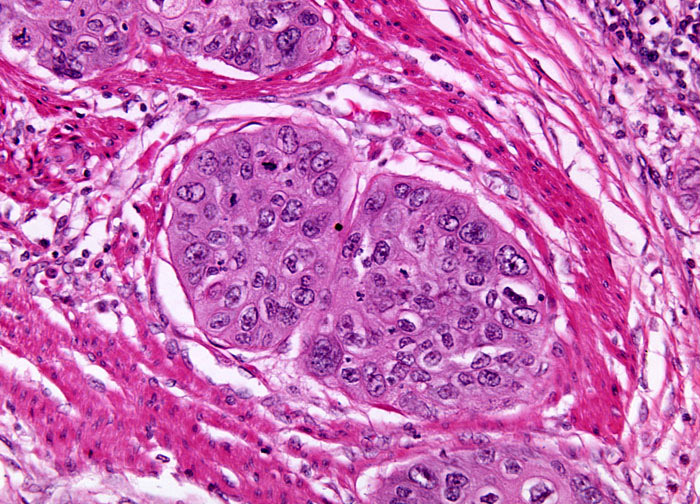
Esophageal Carcinoma at 20x Magnification
Individuals who are suspected of having esophageal carcinoma generally undergo a number of tests, which may include x-rays, esophagoscopy, biopsy, computed tomography (CT) scans, and ultrasound exams, so that a definitive diagnosis can be made and the extent of the disease, if found, may be determined. Based upon this information, the most suitable treatment options can be established and initiated. Whenever possible, treatment usually involves surgery, since all malignant cells, if localized to a small area, can be removed through such means, resulting in a long-term cure. Nevertheless, surgeries involving the esophagus are generally very complex and complications can often ensue. When surgery is not suitable for a particular case of esophageal cancer, chemotherapy or radiotherapy may be utilized alone or in conjunction with one another. These techniques are not curative, but can shrink tumors and alleviate some symptoms of the disease.













